Often described as a continent in a country, South Africa is a wonderfully diverse destination. The Rainbow Nation has it all: world-class wines, food that competes on an international scale, huge nature reserves and spectacular wildlife you can enjoy on safari tours. It’s also the perfect springboard to combine with a trip to other African safari destinations.
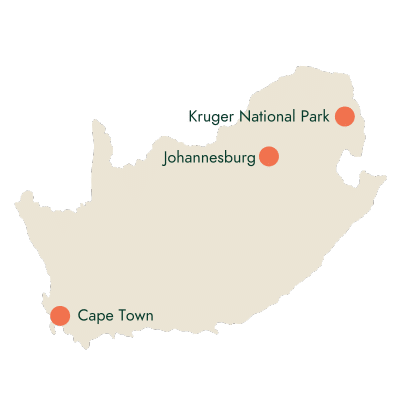
Travelling to South Africa with True
Some of our team grew up in South Africa, so travelling with us provides access our network of top local guides and the highlights of South Africa from inside knowledge.
Our travel design process starts with you and your ideas, each trip created from a blank piece of paper.
Our Africa specialists have created a selection of example itineraries to provide a sense of what can be crafted for you in South Africa.
10 Day Itinerary
Guide Price: £10,300pp
Guide Price: $12,400pp
Experience opulent stays in South Africa, touring the Cape Winelands with a local expert and enjoying Cape Town’s stunning views. Delve into the Kalahari Desert with a private safari guide and have incredible wildlife encounters.
14 Day Itinerary
Guide Price: £9,300pp
Guide Price: $11,200pp
Experience private seaside picnics and botanical adventures in the Cape Floral Kingdom, complemented by leisurely moments in Franschhoek’s charming village. Explore ancient San rock art and indulge in beachside tranquility and world-class dining in quaint villages.
12 Day Itinerary
Guide Price: £9,300pp
Guide Price: $11,100pp
Embark on an exciting South African adventure to marvel at incredible landscapes rich with wildlife and to explore vibrant Cape Town’s rich offerings.
13 Day Itinerary
Guide Price: £9,900pp
Guide Price: $11,900pp
Journey to South Africa for pristine beaches and an array of unforgettable wildlife encounters, capturing both the Big Five game animals and the Marine Big Five in a single trip.
Experience opulent stays in South Africa, touring the Cape Winelands with a local expert and enjoying Cape Town’s stunning views. Delve into the Kalahari Desert with a private safari guide and have incredible wildlife encounters.
Experience private seaside picnics and botanical adventures in the Cape Floral Kingdom, complemented by leisurely moments in Franschhoek’s charming village. Explore ancient San rock art and indulge in beachside tranquility and world-class dining in quaint villages.
Embark on an exciting South African adventure to marvel at incredible landscapes rich with wildlife and to explore vibrant Cape Town’s rich offerings.
Journey to South Africa for pristine beaches and an array of unforgettable wildlife encounters, capturing both the Big Five game animals and the Marine Big Five in a single trip.
Embark on a South African adventure to enjoy the perfect blend of wildlife encounters, scenic towns and delicious wine tasting experiences in charming vineyards.
Experience the ultimate family getaway in South Africa, combining the Big Five marvels of the malaria-free Madikwe Game Reserve with the coastal splendour of De Hoop Nature Reserve.
Combine a trip to South Africa and Mauritius for the perfect family-friendly adventure, blending together an unforgettable safari experience and introduction to the Big Five, with an idyllic beach escape including the sandy white beaches and inviting lagoons of Mauritius.
Journey to Africa for an effortless blend of an intimate safari experience with unmissable Big Five sightings in South Africa, alongside a remote beach escape to a tropical haven in Mauritius.
Embark on the perfect adventure for families across Africa, exploring beautiful regions rich in wildlife all the while engaging in thrilling outdoor activities.
Experience the thrill of a South African safari, catching glimpses of the renowned Big Five, coupled with moments of pure relaxation on the immaculate beaches of the Seychelles, where an underwater realm of marine life beckons.
Embark on a remarkable Southern African journey, discovering the highlights of South Africa, Botswana and Zambia. Explore culturally vibrant cities and become immersed in breathtaking natural landscapes with unique features, teeming with diverse wildlife.
Experience a South African safari together with a Madagascan paradise all in one extraordinary trip. Prepare for game drives and safari expeditions to witness the rich wildlife of South Africa, then unwind on the paradise island of Nosy Be in Madagascar.
The foundations of a memorable holiday are the experiences and South Africa has an abundance of activities to make each itinerary special.
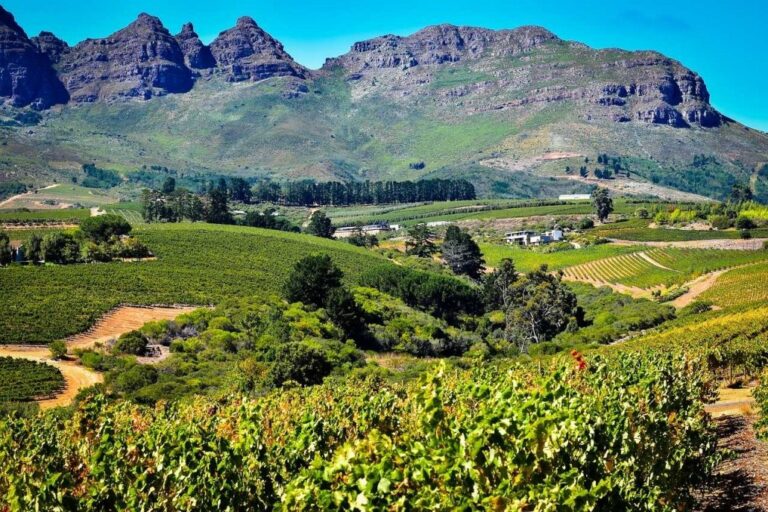
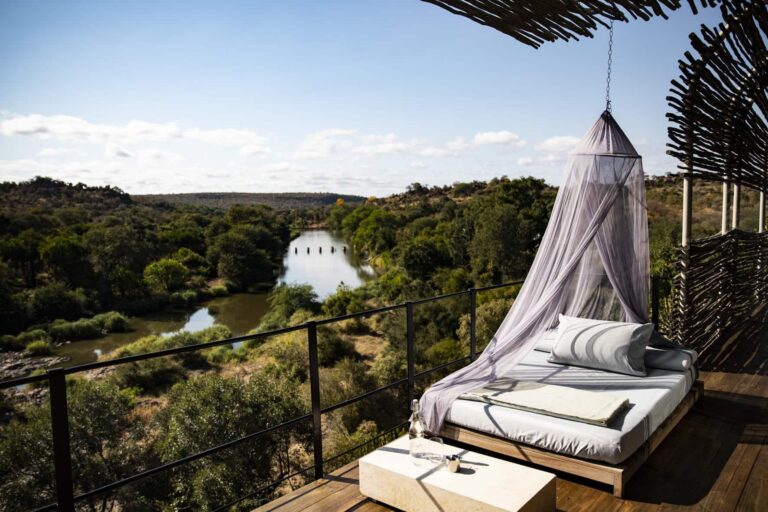
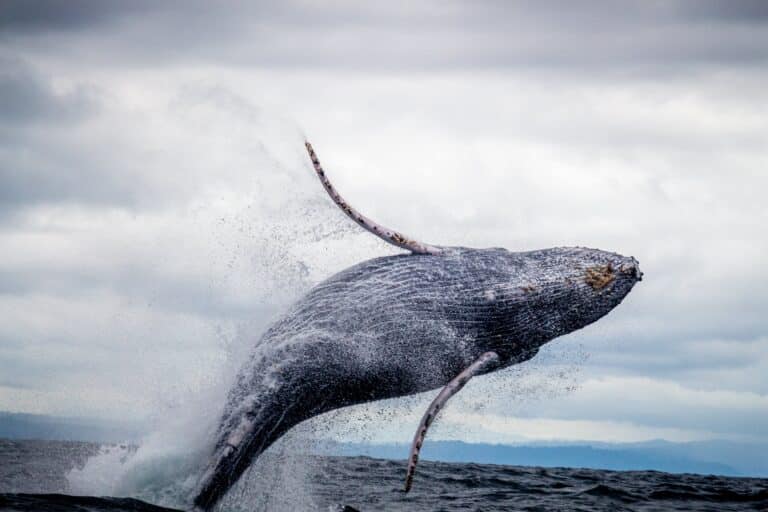
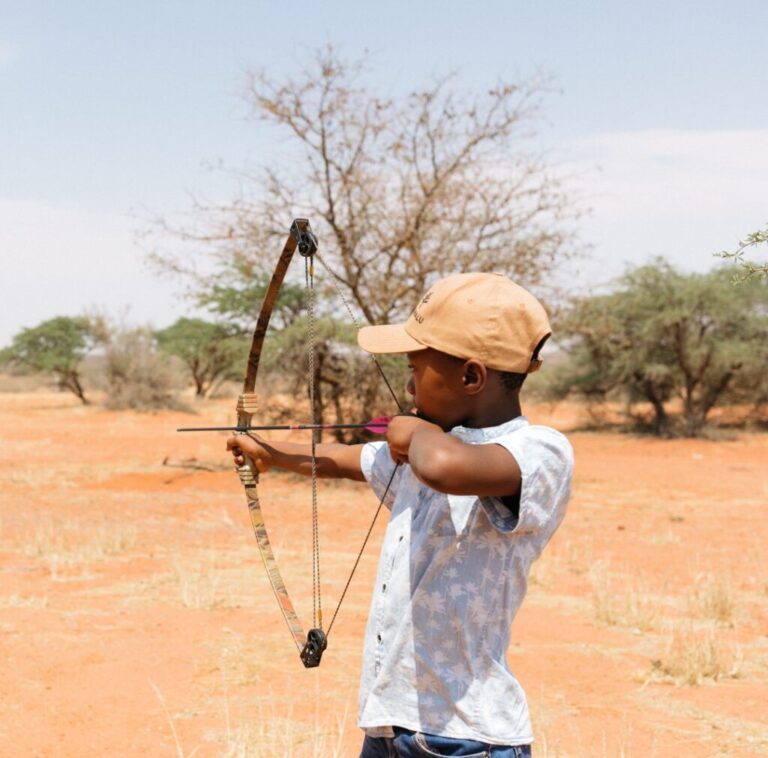
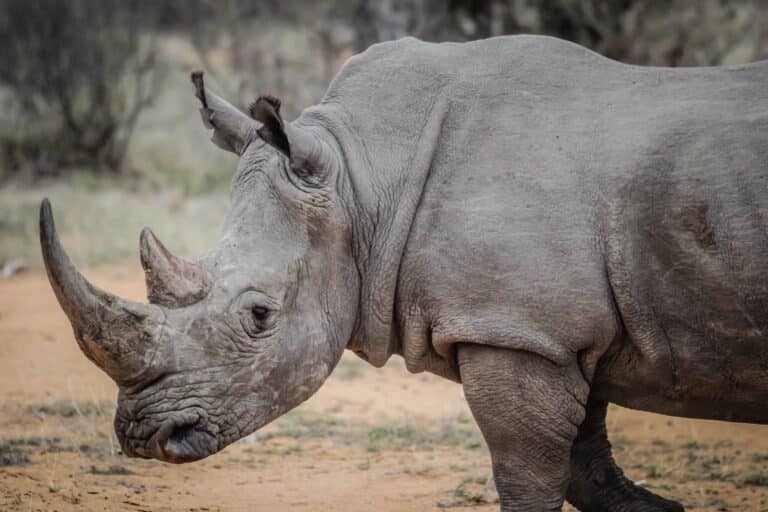
The choice of accommodation is so vast and varying, given the make-up of this diverse country. Choosing the right property can make or break a trip and it is an important consideration when it comes on who True Travel selects to work with.
Each trip True Travel curate is based on the experience you are looking for and as an independent travel operator, we are not obliged or committed to any properties. You can rest safe in the knowledge that the accommodation we recommend for your stay has been chosen based on your interests, not ours.
South Africa stands out as one of the most popular travel destinations in Africa, not just because of the variety of experiences on offer and the quality of places to stay, but because it is a genuine year-round destination, with varying climates across the country meaning there is something for everyone throughout the year.
Local Time: GMT+2
Local Currency: South African Rand
South Africa has so many highlights and destinations which are must visits. From the cosmopolitan cities of Cape Town and Johannesburg, the safari mecca that is the Kruger National Park or the delights of The Winelands and the infamous Garden Route.
Our Africa specialists, Felix and Matt have created a guide to the regions of South Africa and what types of experiences you can expect to find.
The largest game reserve in South Africa, the Kruger National Park is larger than Israel. Nearly 2 million hectares of land that stretch for 352 kilometres (20 000 square kilometres) from north to south along the Mozambique border, is given over to an almost indescribable wildlife experience. Certainly, it ranks with the best in Africa and is the flagship of the country’s national parks – rated as the ultimate safari experience.
When visiting the Western Cape, exploring the Winelands is an absolute must. South Africa’s wine industry is one of the largest in the world dating back to the 17th century and the wineries are incredibly picturesque welcoming visitors for tasting with open arms.
An unbeatable balance of exquisite natural beauty and year-round activities make Cape Town an easy city to fall in love with. Awash with variety, from sandy beaches to mountain hiking trails, national parks to vibrant shopping areas. First-class restaurants, interesting galleries and luxury boutique hotels. Cape Town will appeal to just about anyone in the mood for a holiday. It’s a perfect stop for honeymooners, families and adventure lovers.
Our team of Africa specialists, Felix and Matt have over 30 years of experience selling Africa holidays, so you can be assured you will be in the best hands when planning your trip. They will look after you start to finish using their expert knowledge to give you a holiday to remember.


Felix has over 17 years experience designing trips to Africa and has travelled to many far-flung regions in the continent; visiting at least twice a year since his career began.

Raised in South Africa, Matt has travelled around Southern and East Africa from childhood. He’s been on safari over 50 times all over the African continent and is extremely passionate about Africa’s wildlife and wild places.

INSPIRATION
SIGN UP
Weekly travel inspiration, news and updates from our team of travel specialists
Sign up